Choosing the Right Programming Language for WordPress Development
Which WordPress Programming Language Should You Use?
Published on August 5, 2019, by Chris Croll
On May 27, 2003, WordPress emerged as a game-changer in the realm of content management systems (CMS). Fast forward sixteen years, and WordPress continues to dominate, with estimates suggesting that over 34% of all websites on the internet are built on this platform. As with any technology that matures, the need for adaptation and evolution has become essential to remain relevant in an ever-changing digital landscape.
The Evolution of WordPress Usage
Today, agencies and developers are increasingly discerning about the tools they employ for various projects. WordPress excels not only as a blogging platform but also as a versatile CMS capable of accommodating modern demands. One notable trend is the ability to create online stores seamlessly through integrations like WooCommerce.
Exploring Popular WordPress Programming Languages
To effectively extend your WordPress capabilities, understanding the programming languages that drive the platform is crucial. Below, we dive into some of the key languages every WordPress developer should consider.
1. JavaScript
JavaScript is revolutionizing how WordPress is utilized, particularly through the concept of a headless CMS. This approach leverages the WordPress REST API, allowing developers to use JavaScript frameworks such as React.js or Vue.js to deliver dynamic content without relying on traditional WordPress themes.
- Headless WordPress enables content management through WordPress while providing flexibility in design through preferred frameworks.
- For sites that don’t require frequent updates, Gatsby.js serves as an excellent solution for static site generation.
Additionally, the introduction of the Gutenberg editor in WordPress 5.0 has further cemented JavaScript’s significance. Gutenberg’s blocks are built using the React library, making JavaScript knowledge a valuable asset for developers looking to customize and expand this editing tool.
2. PHP
For those who prefer to stick with the traditional WordPress setup, learning PHP remains essential. All core WordPress functionalities are built using this server-side scripting language, and understanding PHP is fundamental for developing within the WordPress ecosystem.
- PHP frameworks, like Laravel, can be utilized to create decoupled WordPress sites that still communicate via the REST API.
- Staying updated on PHP standards, particularly for versions 7.1 and above, is crucial as earlier versions are no longer supported.
While mastering PHP frameworks can be complex, it significantly enhances your ability to create advanced functionalities and integrations.
Learning Resources
Whether you’re starting with JavaScript or diving deeper into PHP, numerous resources can help you along your journey:
- JavaScript: A Real-World Guide to Using Gutenberg, JavaScript Tutorials, Beginner-Friendly Courses.
- PHP: Learn PHP by Code Academy, PHP Tutorial by W3Schools.
Mastering these programming languages not only equips you with valuable skills but also opens doors to new job opportunities, especially as JavaScript remains a highly sought-after skill in the tech industry.
As you strengthen your WordPress development capabilities, consider exploring managed WordPress hosting solutions that can simplify your workflow. Fully managed hosting services often include features like automatic updates and backups, allowing you to focus more on learning and creating.
Stay ahead in the rapidly evolving digital world by embracing new technologies and expanding your skill set in WordPress development.
